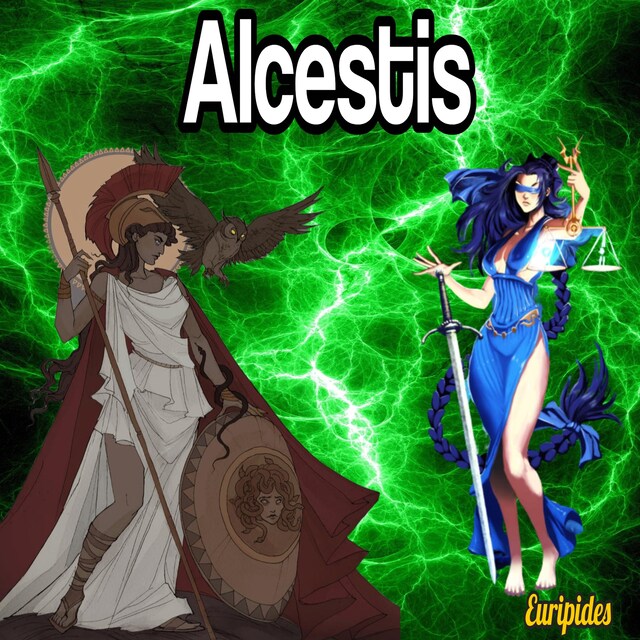
Alcestis
Buchbeschreibung
Alcestis by Euripides Audiobook is an Athenian tragedy by the ancient Greek playwright Euripides. It was first produced at the City Dionysia festival in 438 BC. Euripides presented it as the final part of a tetralogy of unconnected plays in the competition of tragedies, for which he won second prize; this arrangement was exceptional, as the fourth part was normally a satyr play. Its ambiguous, tragicomic tone—which may be "cheerfully romantic" or "bitterly ironic"—has earned it the label of a "problem play." Alcestis is, possibly excepting the Rhesus, the oldest surviving work by Euripides, although at the time of its first performance he had been producing plays for 17 years.
Synopsis:
In the play's prologue, the god Apollo comes out from Admetus' palace in Pherae (modern Velestino in Magnesia), dressed in white and carrying his golden bow, with the intention of leaving to avoid becoming stained by the imminent death of Alcestis, who is being comforted within. He offers an exposition of the events leading up to this moment. He hails the arrival of Thanatos (Death), who, dressed in black and carrying a sword, has come to the palace in his role as psychopomp to lead Alcestis to the underworld. Thanatos challenges Apollo's apparent defense of Alcestis and accuses him of "twisting slippery tricks" when he helped Admetus cheat death in the first place. Apollo reassures him and, in a passage of swift stichomythic banter, proposes a postponement of Alcestis' death, which is sarcastically rebuffed. Thanatos concludes, "you may not have what is not yours.
"Defeated, Apollo leaves angrily, prophesying the arrival of a man (Heracles) who will wrestle Alcestis away from Death. Alone with the audience, Thanatos warns that "this was a god of many words; but words / are not enough," before he summons the doors open with the tip of his sword and slowly enters the palace.
The entry of the chorus, or the "parodos" sequence, follows: a chorus of fifteen men of Pherae, led by a "coryphaeus" (chorus-leader), enter the orchestra of the theatre. The chorus-leader complains that they are in a state of suspense, ignorant of whether they ought to be performing mourning rituals for their queen.
Format:
Sprache:
Englisch
Das denken andere über das Buch
Rezensionen zu Alcestis
Buch
Es gibt noch nicht genügend Bewertungen
Sprecher*in
Es gibt noch nicht genügend Bewertungen


